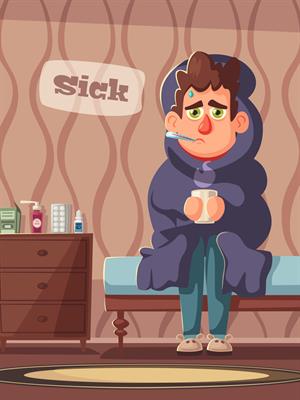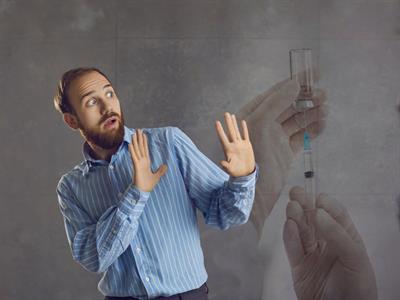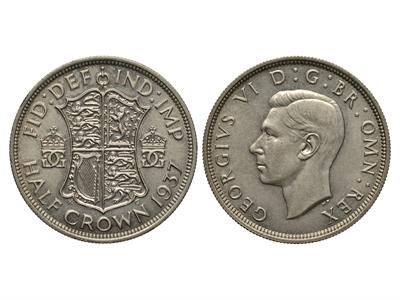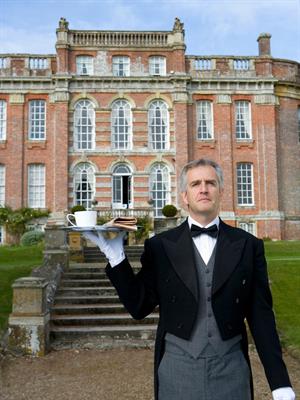
PUMPA - SMART LEARNING
எங்கள் ஆசிரியர்களுடன் 1-ஆன்-1 ஆலோசனை நேரத்தைப் பெறுங்கள். டாப்பர் ஆவதற்கு நாங்கள் பயிற்சி அளிப்போம்
Book Free DemoThe story is originally titled 'The Adventure of Dying Detective' and is written by Arthur Conan Doyle. This is one of the forty-six stories that Doyle has written featuring Sherlock and Watson. Sherlock is the most intellectual and smart detective who solves most of the unsolved cases and crimes. The story's topic in itself triggers a curiosity in the reader's mind, as Sherlock is the only detective and makes us wonder if this is the last of the mastermind.
In almost all of Doyle's stories, Sherlock resides in \(221B\) Baker street in London. The house is owned by Mrs. Hudson, who takes proper care of Holmes. She even rescues him from a sniper in one of the stories. She makes multiple appearances in the stories, and most of it is to introduce the arrival of a new character to the scene. She does not pry on the conversations and often leaves the visitor with Holmes. The story 'The Dying Detective' also starts with Mrs. Hudson, who is frantically reaching for Dr. Watson. She informs him that Sherlock is in a sad state and he is really ill.

Mrs. Hudson tells Watson about Holmes
Dr. Watson was an army doctor initially, who had a major accident in his leg, due to which he could not continue in the army. When Mrs Hudson informs Watson, she does not just say that Holmes is ill, rather she uses the statement that he is dying, indicating that the condition is serious. She says that Holmes had been ill for the last three days, and if he goes on like this, he will die within the next day. In spite of being really sick and on the verge of dying, Holmes does not ask for a doctor. But Mrs. Hudson does not leave him alone as she is concerned. She says that she cannot stand him dying without any medical help. Since she insists, Holmes says that if she had to bring in a doctor, it has to be his old friend Dr. Watson.
It is terrible news to hear that our loved ones have fallen sick or are having trying times. Holmes was more like a mentor to Dr. Watson, and he had accompanied the detective in most of his cases. He had always been mesmerised by the smartness and the way Homes solved cases within a short span of time. He was even more shocked as he was not expecting such a great detective to fall sick to the extent of being on death bed. Rather than being shocked, he says that he was horrified. He does not wait for any further conversation with Mrs. Hudson, as he immediately wants to meet up with Holmes. He reaches out for his hat and coat as it is mostly cold in London, and one cannot walk in the snow without these. Rather than wasting time asking Mrs Hudson about more details at his home, he asks her what exactly the situation is.
Mrs. Hudson reveals that there is not much that she can tell him, as she only has a vague idea of Holmes' situation. She was here only due to concern that something might happen to him. But she tells him whatever information that she has. Sherlock had gone to solve one of his cases, where he had contracted a deadly disease that is non-curable. She also tells him that it was at a place called Rotherhithe, situated near the river. Usually, diseases spread around river areas, as large water bodies can bring in dangerous insects which reside in wet areas. It was also a port area in London. Holmes fell sick on a Wednesday afternoon, and it had become severe from that very moment. He had not been able to move since then, nor has he eaten anything at all. When we are sick, it is common that we lose taste and appetite. But it can also complicate health conditions. It had been three days since Holmes fell sick, and Watson wonders why they had not called a doctor in the beginning stage.

Watson enquires about Holmes in the car
Mrs. Hudson informs that Holmes had specifically instructed her not to call for a doctor. She could not do anything disobeying him, as he would get angrier, which might make things worse. Watson finally visits Holmes and narrates that he was indeed a sad sight to see, as it was visibly clear that he was so unwell. It was November which made the room have a foggy feel. Holmes was in his sick room, which had a gloomy atmosphere. It was painful for Watson to see Holmes with his meek and thin figure with eyes reflecting his bad health, his cheeks flushing and hands twitching. He lay in his bed like a lifeless person.

Holmes looked very sick
When Watson finds Holmes tired and exhausted, he is heartbroken. Holmes is not his usual self as he is lying on his bed, showing visible symptoms of being sick. Generally, he rarely sleeps and wanders around actively solving crimes. As soon as he sees Holmes, Watson cannot hold back his sadness and approaches him, crying out his name. Generally, people stay away from sick people even when it is a mild fever for fear of transmitting the disease. But Watson does not stop himself from going near Holmes to express his concern. But Holmes, also being a friend to Watson, does not allow him near. He is aware of his condition, and he does not want his friend to be affected because of him. The readers and the characters in the story guess that this might be the reason for Holmes' unusual reaction. Holmes asks Watson to stand back and not come any closer.
Watson is confused, and he asks why Holmes is avoiding him. He makes it clear that he wants to help Holmes. Since he is a doctor, there is a chance that he can diagnose the disease and prescribe medicines to cure him out of the sickness. But Holmes is equally worried about Watson and his safety. Holmes clarifies that it is not out of hatred that he is avoiding Watson, rather for his own sake. Watson was surprised as to what Holmes means that he is avoiding him for his own sake.

Holmes does not let Watson near his sickbed
Holmes says that he does not need a doctor to diagnose his illness; rather that he himself knows what he is suffering from. He says that an illness attacked him from Sumatra, a small island in Indonesia. Transmittable diseases travel from one place to another as many people move from one place to another. Holmes says that it can easily spread just by being in proximity. He also says that it is deadly and contagious. It can even spread to a healthy person just by touch. But Watson's loyalty does not stop him from coming closer to Sherlock. But Holmes was an even more stubborn person, and he very sternly says that he will talk to him only if he maintains distance. He asks him to leave if he is not willing to oblige. But Watson, who always obeys Holmes, is reluctant to do so this time, as he was a doctor, and it is his duty to save lives and try to cure the disease. He says that in this particular context, he is Holmes' master.

Holmes claims he has a contagious disease
Holmes is very adamant that he will not allow anyone to touch him or come near him. Watson feels that Holmes needs help when he is sick with the deadly disease. When one is sick, they are not only physically unfit but also mentally stressed. So Watson thinks that rather than obeying Holmes in a situation like this, he must take charge. He tells Holmes that he is not being his usual self due to his sickness, and that is the reason why he is making illogical decisions such as not consulting a doctor. Dr. Watson says that he will examine Holmes' symptoms and treat him accordingly. But Holmes immediately denies this offer.

Holmes is against being examined by a doctor
Holmes, who was initially denied the offer to see a doctor, now agrees to see one. But he makes a condition that he will have a doctor only in whom he has confidence. This surprises and saddens Watson, as he had been close to Holmes and was not expecting this. He wonders if Holmes does not have confidence in him as a doctor. He also feels let down as he is not allowed to treat his friend. He also asks Holmes if he does not trust him. But Holmes makes it clear that he definitely trusts him as a friend. But it is different when we trust someone as a friend and trust them with our life. Doctors specialise in different areas, and different diseases are treated by someone who has studied deeply on the subject. There are doctors who look into general diseases such as normal fever, cough etc., Dr. Watson was one such general physician. Holmes cites this as a reason why he wanted another doctor. He also points out that it is not a normal disease that has contracted him.
Watson understands and suggests the best physicians in the town to cure him. He says that he will call Sir Japer Meek or Penrose Fisher, who are sought after doctors. Holmes says that Watson is ignorant as it is not easy for any doctor to cure him. He says that he has contracted Tarpaunli fever. It is also called the black Formosa plague, which is deadly and contagious. Watson understands the seriousness and agrees that he has not even heard of this disease and suggests an even better doctor named Ainstree, who can treat any disease. But then something unexpected happened with Holmes. Holmes, who was sick for so long, jumps out of his bed and bolts the door, preventing Watson from going out. He lays out a rule that Watson should give him two hours to rest and that he can call a doctor after that. He says that they would stay talking and reading books until \(6\).

Holmes literally jumped out of the bed
Holmes, who was sick, exhibits certain characteristics of a normal person when Watson indicates about bringing a doctor in. He deliberately tries to prolong this event for some reason which is not evident. Watson is confused but goes along with what Holmes says. Holmes had asked for 2 hours to spend with Watson before meeting the doctor. He agrees to see the doctor by 6 o'clock. But Watson is unable to be as cool-headed as Holmes. Although he asks Watson to read books, he is unable to do so. He just walks around slowly in rounds, looking at random pictures. He does not know how to while away time as he is eager to bring a doctor and treat Holmes.
When one does not know how to while away time, they look around things or observe things that they previously would not have noticed, as this is better than having an awkward silence. Similarly, Watson walks around and reaches the mantelpiece. The mantelpiece is like the frame of the fireplace. Since London has cold climatic conditions, most houses had a fireplace. People arrange decorative pieces on top of the shelf for people to see. Watson sees a black and white ivory box with a sliding lid. People in the olden days had such lids, which was mostly jewellery box or decorative pieces. Watson was curious to know about it and took it in his hands to examine it. But he heard a scream all of a sudden. It was Holmes who spoke with an angry tone. He gave a dreadful cry that he hates his things being touched. He insists Watson keep it back in its place and come back. He asks him to sit with him until he rests.

Mantel Piece
They had to sit in silence, just looking at each other. Watson was dejected as he was not allowed to touch anything and had to be idle. They somehow passed the time till 6. Holmes asks if Watson has any change. He specifically asked if Watson had half-crowns. Half crowns are small coins that people use in Britain, which has less value. Holmes instructs Watson to put some of them in his watch pocket and the rest in his trouser pockets. He also asks to light a lamp and make it only half dim. He also asks him to place paper and some letters in his reach. He also asks him to place the ivory box from the fireplace on the table. He also asks Watson to slide the lid of the box. He asks Watson to call Mr. Culverton from 13 Lower Burke Street’. Watson is confused as Holmes had agreed to consult a doctor after two hours. He also says that he had never heard of the name. He did not want to leave Holmes alone as he was already sick and delirious.

Half crown
Holmes asks Watson to wait until six in the evening until he gets a doctor. When it was six, he instructed Watson to bring a person named Mr. Culverton Smith. The readers assume that it is the name of the doctor. But being a doctor himself, Watson has never heard the name previously. He still agrees to bring the person. Holmes explains why he thinks Mr. Smith is the person he wants to meet. He surprises Watson by saying that he is not a doctor, rather a planter. Mr. Smith is a planter who generally lives in Sumatra but is visiting London. Since Holmes believes that he contracted the disease from Sumatra, he believes that Mr. Smith's insights might be useful, as he has a knowledge of the disease.

A planter
Holmes also explains that he wanted Watson to go after six as he would only be found in the study at that time. Holmes seems to be having an underlying thought to this, as he seems to have more information about the schedule of the planter. Holmes is also very keen on Watson bringing home Mr. Smith, making it look strange. He says that Watson has to go to the extent of pleading with him and somehow bring Mr. Smith home. He also makes sure that Mr. Smith knows exactly that Holmes is very sick and is in dying condition. Watson understands that it is very important for Holmes that he brings Mr. Smith and says that he will bring him in a cab and come along with him. But Homes immediately rejects this plan and says that his job is only to persuade him to come and meet Holmes. He asks him to make some excuse and come back home after convincing Smith.
When Watson goes out to Mr. Smith's house, he sees Mrs. Hudson waiting and crying. She is so worried about the condition of Holmes that she is nearly trembling. He also meets Inspector Morton, who is a character in most Sherlock Holmes stories. He is the inspector who always seeks help from Holmes in most cases that happen in Scotland Yard. He is also concerned about Holmes' health. Watson tells him that Holmes is very ill, as they are waiting to hear about his health.

Mrs. Hudson trembles and cries
Watson finally reaches Mr. Smith's house and tries to bring him to Holmes. Most houses in London had a butler who managed the entire house. They decided who the owner gets to meet. The butler does not know who Watson is and therefore does not immediately allow him to go inside. He checks in with the master if he can be allowed in. When he does so, he leaves the door half-open. Watson hears Mr. Smith telling his butler that he is not interested to see anyone and asks the butler to tell him that he is not available at home. But Watson could clearly see that he was available at home. He is also reminded that Holmes wanted to bring Mr. Smith home by hook or crook. So he pushed past the butler and reached the room where Smith was in. He begs for pardon for being disrespectful and not taking permission but also begins to talk about Sherlock Holmes' condition.

A Butler
Mr. Smith was a very thin man with a bald head. When Watson mentions the name of Holmes, His face changes, it has a different effect on him. It could be noticed that he had a history with Holmes. He enquires as to how Holmes is doing. He asks about his health. Watson says that Holmes is very ill, just like he has been instructed to. He also says that Holmes had a very high opinion about Smith. He tells this out of his own experience, as Holmes denies getting treated by Watson, nor did he agree to see any other doctor. He was adamant about seeing Mr. Smith, who was not even a doctor. So Watson tells him that Holmes believes that Smith is the only man in the world who can rescue him. When asked what made Holmes think about him in such a way, Watson says that it was because Smith was from Sumatra and that he might know about Eastern diseases. This makes Smith proud of himself, and he agrees to come.
Holmes had specifically instructed Watson not to stay there once Smith agreed. So Watson makes an excuse and gets back home to Holmes. He pretends that he had another appointment to get away from Smith. He informs Holmes that he has done what was asked of him. Holmes appreciates that Watson had executed the job efficiently. He instructs Watson that he has to stay in the next room and is not supposed to come out of it or speak until he has been called for. At the moment in the story, the readers suspect that Holmes has a plan and is up to something.
Holmes had prepared for an event that he had planned to unfold. He lays there in his sickbed, waiting for Mr. Smith to reach. Watson heard a footstep approaching from the other room. He can only hear and not see clearly from his place. He heard a voice call Holmes' name. Holmes had also probably heard the footsteps and the voice and calls out asking if it was Smith who had come. He starts praising him immediately, saying that he is the only person who knows about the disease and the only person who can rescue him. He asks if he could cure him of the deadly disease. Mr. Smith asks if he could tell him the symptoms of the disease, and Holmes faintly relies on that he could easily list all the effects that his body is showing.
When Holmes gives out all the symptoms, Smith is pleased. His voice reveals that he is actually happy rather than being concerned. He then confirms that these symptoms are the same as his nephew Victor Savage. He also says that Victor was very hale and healthy, but he died pathetically once he got the disease. He could only survive for four days. When he sarcastically says that it is a coincidence that Holmes and Victor shared the same symptom, he expects Holmes also to share the same fate as Victor. Holmes reveals that he is aware that Victor's condition was not natural and that Smith had a role in his death. Mr. Smith very confidently says that there is no way that Holmes could prove it. Holmes does not take up the challenge rather asks for water which emphasises that he is weak to think of proving all that. This gives Smith even more courage, and he passes the water.
Holmes appears as if he is very sick and that he is at the mercy of Smith. He pleads with him to cure him, and that in exchange for that, he would forget about his nephew's death case. It is here that we understand that Sherlock had so far been investigating on this case. He even says that he knows that Smith did it but is willing to forget about it. But even now, Smith does not accept that he did it. He acts as if he is the least bothered and says that he is not worried bout his nephew's death. He is now even more curious to confirm the disease that has affected Holmes. He says that he only knows that he transmitted it from Chinese soldiers on his way from Sumatra. He wonders if there is any other reason for his disease. Holmes does not say anything but tries to get it from Smith himself. He says that his mind is not functioning properly because of the sickness and asks if he could provide any insight.

Holmes pretends to plead with Smith
Sherlock Holmes is the best detective who knows how to pull out words from the criminal's mouth. He pretends that he is unaware of how he had contracted the disease. He asks Mr. Smith if he could think of something. This gives him the idea that he is in complete control of the situation. He starts opening up and directly asks if Holmes has received any delivery in the recent days. He gives very specific details about the delivery. Usually, a person who has no connection would not know what delivery the other person gets. But Smith asks specifically if he had received a box on Wednesday. This shows that he was the one who sent it or that he had something to do with it.

Smith enquires about a delivery
Holmes agrees that he had received a box, and when he had opened it, there was a spring that came out of it. It was sharp and stung him hard, which even drew blood. Holmes innocently pretends that he does not know much about it and says that it must have been a prank or joke played on him. It is now that the evil nature of Smith is revealed. Since he thinks that it is the end of Holmes, he confesses that it was not a joke and he was behind it. He does this to prove he has the upper hand. He angrily asks why Holmes crossed his path, indicating the fact that he had investigated his nephew's murder. Holmes was nearing him in the case, and he wanted to sideline him. He takes away the ivory box that was set on the table and pockets it, as to destroy the evidence.

Ivory Box
Immediately after the confession, Holmes speaks in his normal voice and asks Smith to turn the gas up in the lamp so that it becomes brighter. When he does so, he is faced with confusion. Watson can only hear what is unfolding. Holmes reveals that he acted as if he was sick by starving himself for three days. Watson hears Smith being handcuffed and that he was struggling to let himself loose. Inspector Morton arrests him, showing that he knew all along with the plan. He charges Smith with murder. Holmes then apologises to Watson and says that he knew that Watson was a good doctor and he did not allow to treat him, only because he wanted to bring Smith in. He had fasted for three days to get the look of a sick person so that nobody suspected him. He asked Watson to put half-crowns in the pocket only to emphasise that the sickness had made him half-minded, and he didn't know what he was doing. Holmes says that he wanted to eat something nutritious from the restaurant named Simpsons, and once again, thanks, Watson.